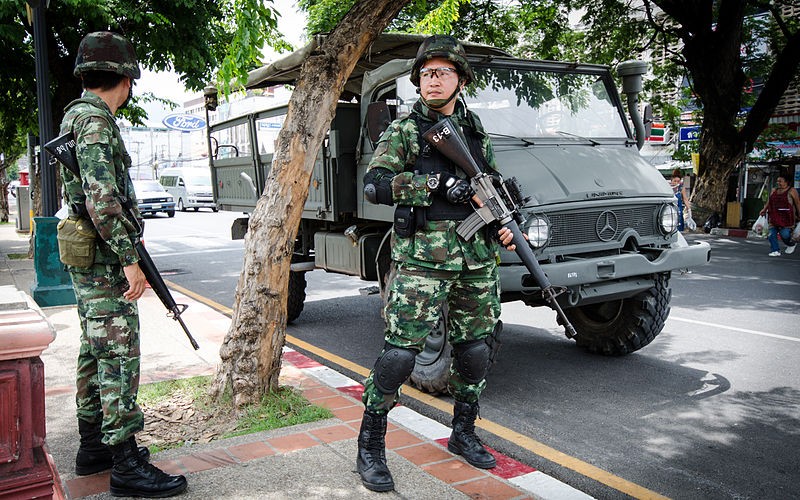Sunai Phasuk, senior researcher at Human Rights Watch’s (HRW) Asia division, told OCCRP on Thursday that the recent attack on brothers Yutthana and Natthapong Saisa represented “just the tip of what is a very large iceberg."
According to a statement from the NGO, soldiers raided the Saisa’s home in the northeastern province of Nakhon Phanom at around 8.30pm on April 17, accusing them of selling methamphetamine in the local community.
A group of around eight military personnel took them to a base at a nearby temple, where they were then allegedly beaten over and again, the soldiers stamping on their chests and kicking them in the head. Yutthana reportedly later died from severe brain and chest injuries.
Thailand is notorious for its draconian anti-drugs regime, under which the most serious offenders, such as those charged with producing, importing or exporting controlled substances, can receive a life sentence and in some cases even the death penalty.
Following a successful military coup in 2014, led by now-prime minister General Prayut Chan-ocha, the army has become zealously and violently involved in enforcing the country’s counter-narcotics policy.
“It simply went from bad to worse after the coup,” Phasuk said. “New directives allow soldiers to carry out warrantless raids, groundless arrests and secret interrogations without a lawyer present for up to 72 hours, all of which are textbook ingredients for torture and other violations to take place.”
HRW on Thursday called for the Thai government to revoke the legislative measures granting such powers to the army, and called for a full and independent inquiry into the attack on the Saisa brothers.
But Phasuk further warned that the lack of accountability these powers have created facilitates a “culture of impunity” for members of the military involved in human rights abuses, adding that the recent incident is simply one of the few that has made it into the public domain.
“We’ve been looking into reports from all over Thailand, and have found a very high number of extra-judicial killings are being committed by soldiers in the war on drugs,” he said.
In March 2017, HRW reported that soldiers had shot dead teenage activist Chaiyaphum Pa-sae after he was arrested on drug charges. The army claimed that the 17-year-old had been carrying 2,800 methamphetamine pills concealed in his car’s air filter, and that when apprehended he had attempted to attack the armed soldiers, first with a knife and then a hand grenade.
The army reportedly provided no explanation of how the teenager, who was proactive in a number of campaigns to promote the rights of ethnic minorities in the country, came to possess these weapons, and security footage of the incident mysteriously went missing shortly afterwards.
While parliament is currently suspended due to anti-coronavirus measures in the country, Phasuk said that once ordinary proceedings are resumed, HRW plans to work closely with Thailand’s human rights committee to subpoena the various military units that have been implicated in these alleged killings and other abuses.





